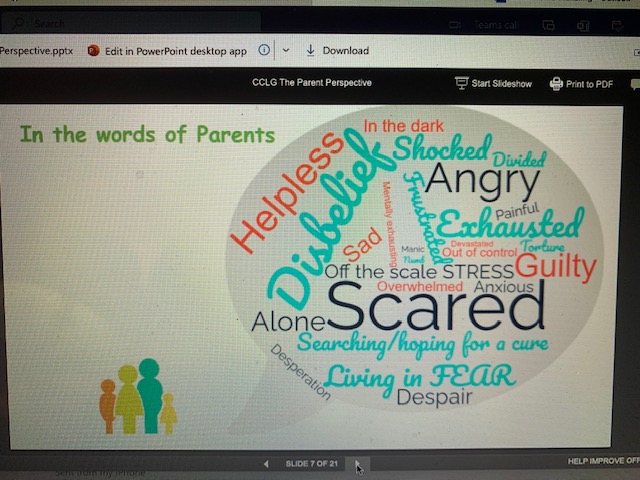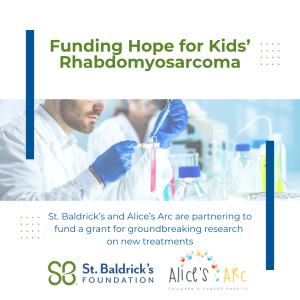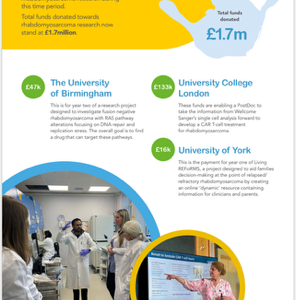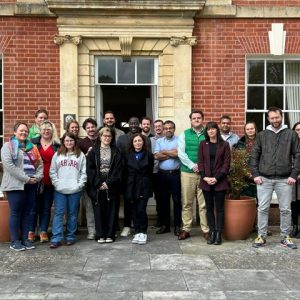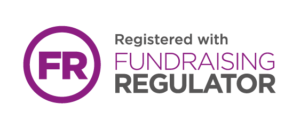CCLG hosted an in-person two day course on rhabdomyosarcoma and other young onset soft tissue sarcomas. It was aimed at trainees in paediatric oncology, trainees in general paediatrics and other specialties involved in the management of these tumours. It brought together a community of expert rhabdomyosarcoma scientists and oncologists as presenters.
We were honoured to be invited to present on the parental perspective for rhabdomyosarcoma. It is a great pleasure to represent the multitude of voices of children, young people and their families impacted by rhabdomyosarcoma. This means articulating the perspective of those newly diagnosed, those on treatment, those who have lost their child, those off treatment and long-term survivors.
It was fantastic to tell the story of the Arcs and all the rhabdomyosarcoma families that we work with and why we have all come together. The oncologists are continuing to refer families to us who may be interested in creating an Arc or who want to be supported by other families with experience of rhabdomyosarcoma.
The course covered pathology, biology, radiology, staging and risk stratification, clinical trials, chemotherapy, palliative care, protons, brachytherapy, the role of the clinical nurse specialist, relapse, targeted treatments, the role of surgery for head/neck, abdominal and limb tumours and late effects and survivorship.
As a reminder (UK figures):
– 75 patients between the ages of 0-24 years are diagnosed with rhabdo each year. 55 in the 0-14 age group and 19 in the 15-24 age group
– The case divide by gender is 61% male and 39% female
– Rhabdomyosarcoma accounts for around 5% of childhood cancer cases.
Some headlines:
– Certain biological markers can be linked to the location of the disease For example, MYOD1 to head/neck, DICER to genitals and TP53/MDM2 in the limbs. This gives rise to questions like why do certain markers arise more commonly in particular sites?
– FaR-RMS will aim to recruit 1250 patients in total. It is now open in 11 countries including Canada, Australia and New Zealand and Israel. Historically, Australia and New Zealand have followed US protocols. Several of the research projects (MYOD1, RAS genes and liquid biopsy/circulating tumour DNA) we are funding link to the trial and it was great to hear them highlighted and how they link to the FaR-RMS trial
– One of the major issues to conducting research is constraints around sample collection and analysis. There are many issues around this involving logistics of collection, gaining consent, not having enough volume of samples, fresh versus frozen samples and so on
– It was interesting to hear about the difficulties trying to target the fusion gene PAX3-FOX01 due to its protein expression. This fusion gene is common in many of the most aggressive cases.
It was fantastic to catch up with so many medical professionals and scientists in person and to make new connections. It really felt like a community coming together with the shared mission of improving treatment and building knowledge about rhabdomyosarcoma.
